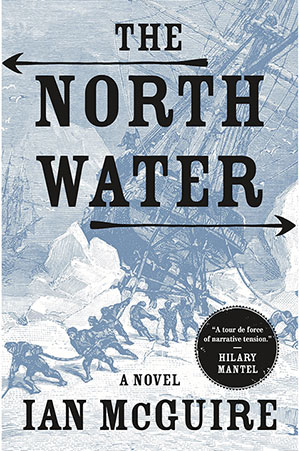The North Water by Ian McGuire
Author Re-creates a World Violent and Unforgiving

Set in the north of England and in the 19th-century whaling grounds of Canada’s Baffin Bay, Ian McGuire’s The North Water re-creates a world that is violent and unforgiving: two brutal murders — described in gruesome detail — take place in the first chapter alone.
The unrepentant murderer, Henry Drax, is the antagonist of the novel’s semi-hero, Patrick Sumner, a former British Army doctor whose greed and social inferiority during the Indian Rebellion of 1857 have cost him his commission and dignity. Lame from a gunshot wound, Sumner is addicted to laudanum, and he spends his spare time as ship’s surgeon on the Volunteer in an opium haze.
Sumner, however, is a survivor, and he has a great deal to survive during the novel’s 250 brisk, blood-spattered pages. Not surprisingly, The North Water occasionally evokes Moby-Dick, but the Cormac McCarthy of Blood Meridian and the Border Trilogy is a much more obvious influence.
Like McCarthy, McGuire revels in describing men — there are very few women in this novel — engaged in work: making an ice dock in the Arctic Ocean, harpooning a seal, cutting open a polar bear, flensing a whale. The barbarous particulars of the characters’ labor will put squeamish readers off, although, as in McCarthy’s novels, sheer brutality is somewhat offset by discussions of good and evil and the importance, or absence, of God.
Philosophical deliberations, however, are fairly brief and always held in service of some larger, pressing action. Indeed, The North Water moves with the driving pace of an action thriller. Like Michael Punke’s The Revenant, McGuire’s novel will make a great film, with a star turn for someone like Leonardo DiCaprio, but this is one of those books that will always read at least as well as it plays on screen — no matter how many awards the movie eventually wins.



